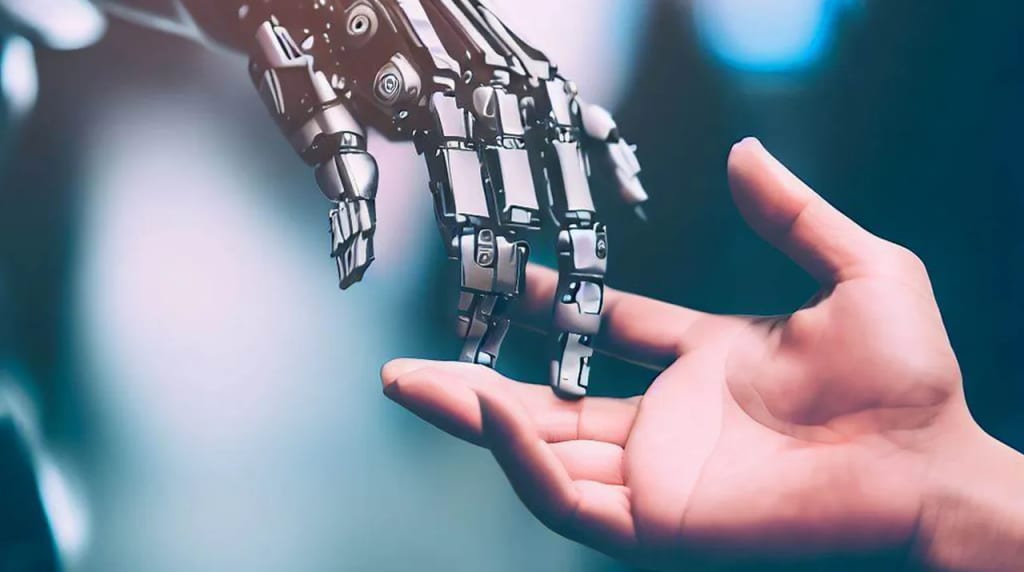The Duality of AI
Benefiting Humanity while Triggering Valid Concerns

Introduction
Artificial Intelligence (AI) has emerged as a transformative force, shaping various aspects of our lives. With its potential to enhance efficiency, improve decision-making, and automate tasks, AI offers numerous benefits to humanity. However, alongside these promises lie genuine concerns regarding its unintended consequences. This article explores the dual nature of AI, highlighting its potential to benefit humanity while acknowledging the valid justifications and worries surrounding its potential to render humans obsolete and take over the planet.
AI's Positive Impact on Humanity
Enhanced Efficiency and Productivity: AI-powered technologies can streamline and automate various processes, enabling businesses and industries to achieve higher efficiency and productivity. From manufacturing and logistics to healthcare and finance, AI algorithms can analyze vast amounts of data, identify patterns, and make accurate predictions, resulting in optimized operations and resource allocation.
Improved Decision-Making: AI systems possess the ability to process and analyze massive datasets swiftly, providing valuable insights and recommendations to aid decision-making processes. This assists professionals in fields such as medicine, law, and finance, where AI can assist in diagnosing diseases, conducting legal research, and optimizing investment strategies.
Advancements in Healthcare: AI has the potential to revolutionize healthcare by enabling faster and more accurate diagnoses, personalized treatments, and drug discovery. Machine learning algorithms can analyze patient data to identify patterns and predict disease outcomes, leading to early intervention and improved patient care.
Smarter Transportation and Urban Planning: AI technologies can optimize transportation systems, leading to reduced traffic congestion, improved safety, and enhanced energy efficiency. Self-driving cars, for example, have the potential to transform mobility by minimizing accidents caused by human error and increasing accessibility for those unable to drive.
AI in Education: AI-powered educational tools offer personalized learning experiences tailored to individual students' needs, allowing for adaptive and interactive instruction. Virtual tutors and intelligent chatbots can provide immediate feedback and support, enhancing students' engagement and knowledge retention.
Valid Concerns Regarding AI
Job Displacement: One of the most significant concerns surrounding AI is the potential loss of jobs due to automation. As AI systems become increasingly sophisticated, tasks that were once performed by humans may be taken over by machines, leading to unemployment and social upheaval. However, history has shown that technological advancements often create new jobs and opportunities, albeit with a transition period that necessitates upskilling and retraining.
Ethical Dilemmas: AI raises ethical concerns regarding privacy, bias, and accountability. Facial recognition technology, for instance, can infringe upon privacy rights, while AI algorithms trained on biased data can perpetuate societal inequalities. Striking a balance between AI's capabilities and ethical considerations is crucial to prevent potential harm and ensure fair and responsible use of AI.
Security Risks: The increasing reliance on AI systems also introduces vulnerabilities and security risks. Malicious actors could exploit AI algorithms to manipulate information, launch cyberattacks, or cause physical harm. The development of robust security measures and regulations is necessary to protect against such risks and ensure the responsible deployment of AI technologies.
Dependency and Human Autonomy: The pervasive integration of AI into our daily lives raises concerns about human autonomy and agency. Relying heavily on AI for decision-making, personal interactions, and critical infrastructure could make humanity vulnerable to technological failures or malicious manipulation. It is vital to strike a balance between AI-assisted decision-making and preserving human control and judgment.
Conclusion
Artificial Intelligence holds immense potential to transform society positively, revolutionizing industries, healthcare, transportation, and education. The benefits it offers in terms of efficiency, productivity, and decision-making are undeniable. However, legitimate concerns exist regarding AI's impact on jobs.






Comments
There are no comments for this story
Be the first to respond and start the conversation.